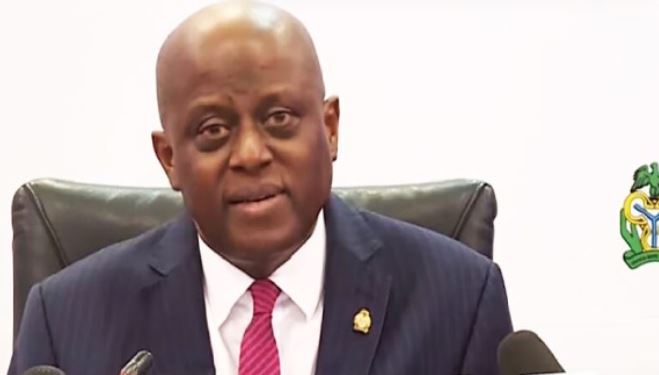
The Monetary Policy Committee (MPC) of the Central Bank of Nigeria (CBN) has increased interest rate to 22.75 percent.
The decision to hike interest rate was taken by the MPC in its bid to combat inflation and stabilize the foreign exchange market.
The CBN led by Yemi Cardoso, as the Governor, made known the Monetary Policy Committee (MPC) decisions on Tuesday, February 27, in Abuja.
The benchmark interest rate, referred to as the Monetary Policy Rate (MPR), was increased by 400 basis points to 22.75 per cent from 18.75 per cent.
This is the highest MPR since 2017 and aims to make borrowing more expensive, thereby reducing money supply and curbing inflation.
The Cash Reserve Ratio (CRR), the portion of customer deposits that banks must hold as reserves with the CBN, was raised from 32.5 per cent to 45 per cent.
This further restricts the amount of money available for lending in the economy, contributing to inflation control.
The asymmetric corridor around the MPR was adjusted to +100/-700 basis points from +100/-300 basis points. This provides the CBN with more flexibility to manage liquidity in the banking system while the Liquidity Ratio, the minimum amount of liquid assets that banks must maintain, remains at 30 percent.
The rationale behind the decisions the CBN Governor said is as a result of the MPC’s commitment to taming inflation, which has been persistently rising. He acknowledged the trade-off between economic growth and inflation control but believe that “long-term growth is only possible in a stable environment with low inflation”.
Going forward, the CBN, Cardoso said, has acknowledged the importance of working with the government to address non-monetary factors contributing to inflation, such as “insecurity and infrastructural deficits”.
The MPC commended the ongoing fiscal initiatives aimed at reducing living costs and improving food supply.
Cardoso answering questions from journalists raised concerns about potential illicit activities and suspicious flows within the cryptocurrency sector, specifically mentioning Binance Nigeria.
According to the CBN governor, “In the case of Binance, in the last one year alone, $26 billion has passed through Binance Nigeria from sources and users who we can not adequately identify. We are concerned that certain practices go on that indicate illicit flows going through a number of these entities and suspicious flows at best.
“There is a lot that is going on now as a result of collaboration between the different agencies which includes EFCC, the police and the office of the NSA and in due course as we progress and have more information to share we will certainly share.
“But suffice to say that we are determined to do everything it takes to ensure that we take charge of our market or put differently and do not allow others to manipulate our markets in a way that ends up distortionary and sub optimises for all Nigerians. We will not accept it and we will do everything possible to prevent any of these kinds of infractions from taking place”.
He emphasized CBN’s commitment to collaborating with law enforcement agencies to regulate the market and prevent manipulation.
The CBN has assured Nigerians that it is committed to clearing the backlog of genuine requests for foreign exchange and recently paid out another “$0.4 billion to those identified”.
Cardoso stated that the CBN aims to improve market liquidity and transparency by attracting more foreign exchange and minimizing distortions. He disclosed that “recent tools have already attracted $2 billion”, and they expect further progress.
The CBN governor said the apex bank is adopting a stricter regulatory environment with zero tolerance for non-compliance especially by banks playing the system. They are collaborating with law enforcement agencies to investigate and address infractions.
According to the CBN Governor, “what we are doing at the moment is a collaboration between the CBN and the law enforcement agencies to ensure that we can understand better what is going on in the market and where infractions are taking place they be speedily dealt with.
“I must say that we are moving to a very aggressive regulatory environment where those policies have been coming out and tolerance for people not to abide by the regulations that are coming out and to comply is zero. People will have to abide by those regulations and those that do not will face the consequences for not doing so”.
Cardoso insisted that a thorough investigation is ongoing to identify past issues in the FX market and promised to share the findings and take necessary actions while ensuring a more transparent and efficient market going forward.
Gross external reserves the Governor revealed now stands at “US$34.51 billion on February 20, 2024, compared with US$32.23 billion at end-January 2024. The improvement was driven by reforms in the foreign exchange market and an increase in oil production amongst others”.
In the coming months it has been forecast that the economy will grow in 2024 by 3.38 per cent (CBN), 3.88 per cent (FGN) and 3.00 per cent (IMF).






